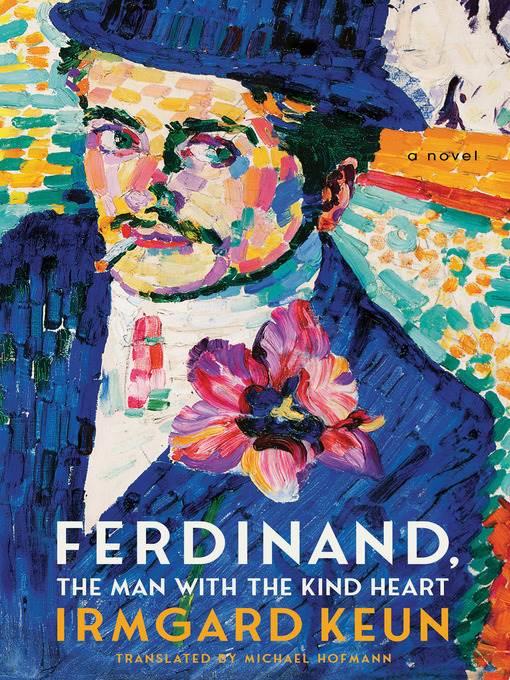
Ferdinand, the Man with the Kind Heart
A Novel
کتاب های مرتبط
- اطلاعات
- نقد و بررسی
- دیدگاه کاربران
نقد و بررسی

September 15, 2020
Satirical novel of postwar Germany, written in 1950 by a writer little known outside her native country. Ferdinand Timpe is a "returnee," a Wehrmacht veteran who lives in a Cologne hovel. He doesn't like the designation: "It sounds a bit like the name of a vacuum cleaner or something," he grumbles. He wasn't much of a soldier, he allows, though he keeps running into old comrades, such as a sergeant who saved his life but then bored him with "the stupidest and nastiest jokes I've ever heard in my life." In a Germany divided in a Cold War world "ajangle with weaponry," a shopkeeper opines that because the Americans won, they must really be Germans, since the Germans are supposed to win in any martial encounter. That's just one example of the strange logic Ferdinand meets with, his neighbors filled with superstition, glad to spend freely on things occult while awaiting the world's end; one of Ferdinand's employers is a neighbor who "now has departments for podiatry, charms, talismans and scents, departments for magical cloth, for clairvoyance and crystallography and the interpretation of dreams, departments for color, astrology, chiromancy, and graphology." Ferdinand would prefer to drink, smoke, and wander the streets dressed in a homemade jerkin, which his bohemian cousin Johanna says makes him "look like a hurdy-gurdy man's monkey." He lacks all ambition, evident when, in a case of mistaken identity, he's commissioned to write an article for a new magazine, requiring him to think, fruitlessly, of a subject ("I was Hitler's pest control guy" is one idea quickly discarded). His family, as we learn episode by episode leading up to a reunion, is just as confused, and so is everyone else. Keun, banned during the Nazi era and all but forgotten afterward, paints with a broad brush, but it's a decidedly unusual and often quite funny picture of a defeated people about to dust themselves off and become an economic power. Fans of G�nter Grass will find Keun a kindred spirit in the meeting of the picaresque and the cynical.
COPYRIGHT(2020) Kirkus Reviews, ALL RIGHTS RESERVED.

October 5, 2020
A German man drifts through his days a couple of years after WWII in Keun’s droll satire (after Gilgi), originally published in 1950. Ferdinand Timpe returns to Cologne after his release from a POW camp. He rents a room from a landlady who sells jam on the black market while he struggles to write a story for his acquaintance Heinrich’s newspaper before learning Heinrich had drunkenly mistaken him for a different, more literary Ferdinand. He feels trapped in his engagement to Luise, which he agreed to at a low point during the war, and attempts to find Luise a different suitor, but his “loose” cousin Johanna steals the men’s attention. Ferdinand takes a job at an occult clinic, doling out advice to clients who participate in a color therapy program (“Find the color of your soul,” reads the inspirational wall text). Ferdinand’s frequent digressions turn to his acquaintances, patients, and family, including his mother, Laura, “a genius of sleep” who avoided problems by taking serene naps, and his determination to find a way out of his engagement climaxes with a fraught family reunion. Keun (1905–1982) shows a sure hand in this biting sendup of postwar Germany, full of absurd moments and amusing foibles. It’s a genuinely funny, ambling story full of sharp character studies.

























دیدگاه کاربران